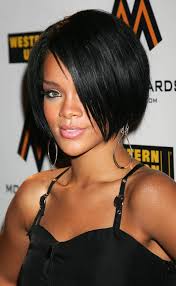This month’s guest post to The Man Files comes at us from Jonathan Felix — college student, drummer, sports fan, and astute social critic. In Jonathan’s words, “Me and my dad sarcastically laugh at the sequence of commercials during ‘guy’ shows on TV: beer, burgers, military. Beer, cars, televisions, military …†Here Jonathan takes on Carl’s Jr. ads asking why they portray guys as kind of stupid.
Masculine, Jr.
In true corporate marketing fashion, Carl’s Jr. depicts demoralizing stereotypes of men and women in efforts to attract consumers.
The fast-food chain’s current commercial shows a beautiful skinny blonde girl wearing make-up and a nice blue dress. She enters her boyfriend’s apartment expecting a classy night out, and finds him on the couch playing video games. The couple talks about a steak dinner, and the guy implies they are going to Carl’s Jr. for their new steak sandwich. The motto after the commercial is that Carl’s Jr. is “How guys do fancy.”
This is NOT how I do fancy.
Commercials like this give good guys a bad reputation. Hey Carl’s Jr. — Listen up! A lot of us actually have our lives together and enjoy taking women out to nice places and good dinners.
Or what about the ad with the guy and the avocado? It makes men look like total barbaric meatheads, who can’t even use a spoon to eat an avocado, and we somehow need Carl’s Jr. to make guacamole for us because we’re too stupid to figure it out.
Now I happen to like Carl’s Jr. But for them to portray guys as that lazy and ignorant is offensive. I can only hope my peers would agree that we have to do better than a #4 Combo if we plan on making good boyfriends and future husbands.
These commercials project a message to the world that men are lame and losers and unable to appreciate even the smallest bit of romantic effort. Far too often our society depicts “real†men as barbarians who love sports and beer and total sexual dominance. And although plenty of men have some of these traits, pop culture insists on exploiting our more obtuse characteristics to sell their products.
These ads completely ignore a man’s intellectual or emotional capabilities. This hurts men who actually have their lives somewhat together. It perpetuates negative stereotypes and affects women’s future opinions about men, be they Prince Charmings or Ronald McDonalds.
Show Jonathan some love and welcome him to Girl With Pen by posting your comments here. Or reach him directly at johnnylbeach at yahoo.com. Until next month! -Shira

 No way!
No way! We had different plans for this month’s blog, but it has become impossible not to comment on what transpired on the night before the Grammy’s.
We had different plans for this month’s blog, but it has become impossible not to comment on what transpired on the night before the Grammy’s.

 First, thanks to Aviva over at Fourth Wave for posting a roundup of links to the Great Ms. Cover Debate of 2009 (“
First, thanks to Aviva over at Fourth Wave for posting a roundup of links to the Great Ms. Cover Debate of 2009 (“ The other day I stumbled across
The other day I stumbled across  Hells yeah, as long as folks like Andi Zeisler are running the show. Check out
Hells yeah, as long as folks like Andi Zeisler are running the show. Check out  And a quick PSA from me:
And a quick PSA from me: 